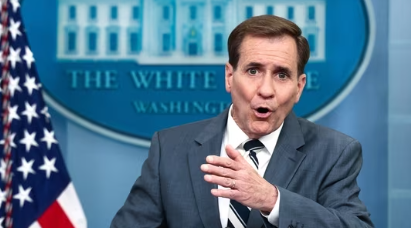Misreading America’s lines (GS Paper 2, IR)

Introduction
- Indian domestic debate on how West, particularly USA sees the democratic credential of India should not be top on the agenda.
- The USA elections and its outcome must be seen carefully in India, because of its impact on trade and security of India.
Indian media’s misplaced concern regarding USA
- Indian media often portrays the US as preoccupied with India's "democratic backsliding" and election interference.
- In reality, the US is dealing with more pressing concerns.
- The ongoing US general election could significantly impact its political, economic, and geopolitical landscape.
- The US is struggling with:
- Russian invasion of Ukraine in Europe.
- China's expansionism in Asia.
- The Gaza conflict affecting American domestic politics.
- The US has not effectively countered the Sino-Russian alliance challenging its global interests.
- Recent visits by Chinese President Xi Jinping to Europe and the upcoming visit by Russian leader Vladimir Putin to China highlight the growing strategic coordination between Beijing and Moscow against the West.
Return of Trump and America’s domestic crisis
- There is little discussion in India about important US domestic debates, especially regarding the upcoming elections.
- Donald Trump's potential return to presidency is concerning for US allies and the Indian media missed covering his recent interview outlining plans on relevant issues for India.
- Indian media prioritizes commentary by US State Department spokespersons over the actual US domestic political discourse.
- Western media coverage of Indian elections is primarily based on reports by India-based correspondents, read more in India than the West.
- Indian foreign reporting focuses on Western media's coverage of India rather than the actual political situation in the countries the reporters are stationed in.
- Commentary on Indian democracy in Western media is a small portion of their overall output.
West’s capital interests
- The debate about Western countries promoting democracy is inaccurate.
- Their foreign policies are driven by capitalists and security interests, not spreading a specific ideology.
- Slogans about "democracy promotion" don't reflect the reality of US foreign policy, similar to how "strategic autonomy" discussions don't reveal much about India's actual foreign policy actions.
- Every country has its own narrative about its global role, but these are adjusted based on realpolitik (political realism) and external circumstances.
- The US's past support for Pakistan's military, overlooking human rights abuses, contradicts the idea of democracy being their top priority.
- Similarly, supporting China's rise and aiding the rise of Islamic extremism in Afghanistan show US foreign policy prioritizes interests over ideology.
- This is not criticizing the US, but highlighting the gap between their stated goals and actual actions.
- Geopolitical and economic interests, not spreading democracy, are the main drivers of US foreign policy.
Concerns for Delhi
- The US elections matter to India for reasons beyond Indian democracy being a talking point.
- These are going to be the fallback of a potential change of guard at Washington
- Potential US trade policy changes under Trump, including a 10% import tariff, could significantly impact India's trade.
- Trump's foreign policy towards Russia and China affects India's strategic partnership with the US.
- Trump's immigration policies targeting undocumented immigrants, including many Indians, should concern India.
- Potential changes to the US government under Trump could have global implications, including for India.
Conclusion
- Ultimately, Delhi Chief Minister Arvind Kejriwal's warnings about a potential "dictatorship" in India and Congress leader Rahul Gandhi's use of the Constitution in his election rallies hold more significance than editorials on the Indian elections in The New York Times and The Guardian.
- The true fight for Indian democracy is internal, not a contest between Delhi and Western capitals.


